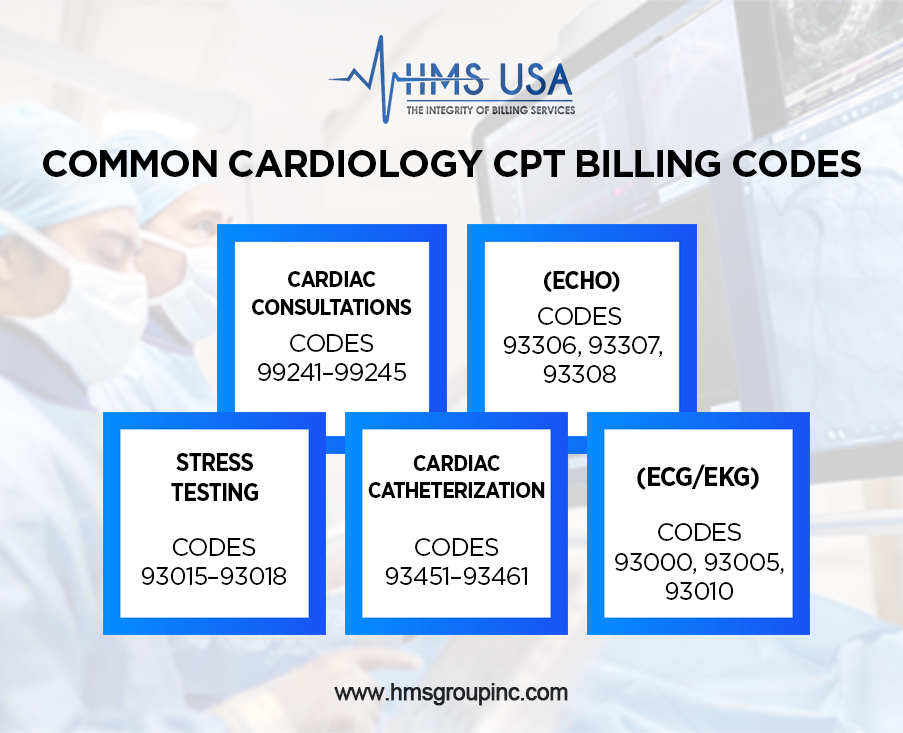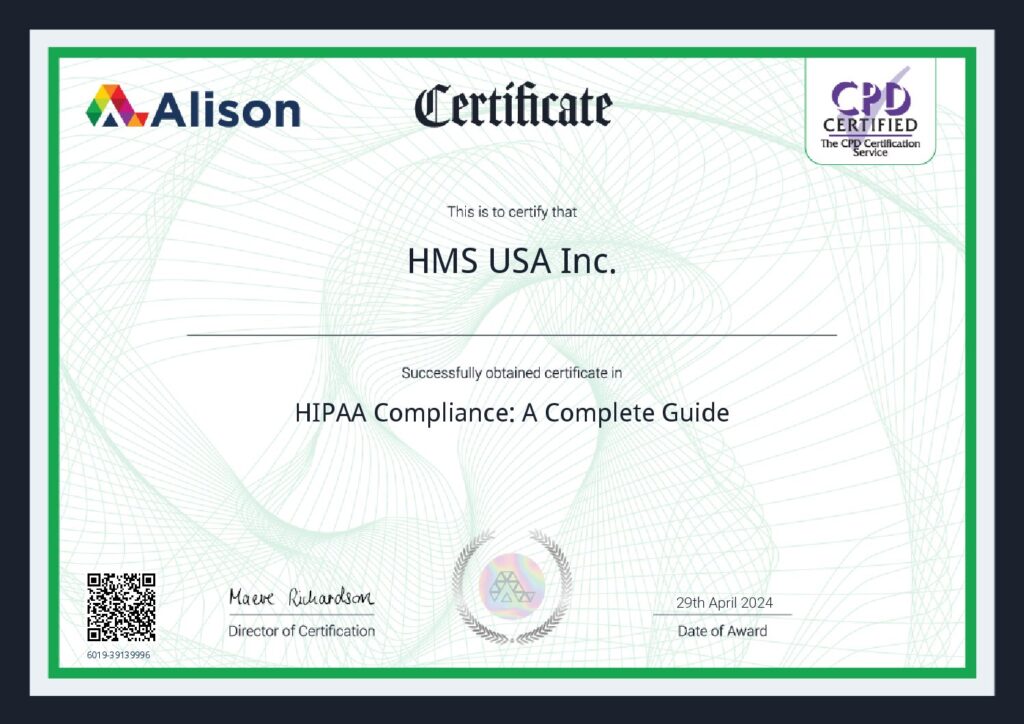Cardiology medical billing is one of the most complex areas in healthcare revenue management. Each procedure, from stress tests to cardiac catheterizations, is important. Has a specific CPT (Current Procedural Terminology) code, and even minor errors can lead to payment delays or denials.
Understanding the most common cardiology CPT codes ensures accurate claim submission, faster reimbursements, and compliance with payer rules. In this guide, we’ll simplify key cardiology CPT codes, share a quick cheat sheet, and offer practical billing tips for a smoother revenue cycle.
Understanding Cardiology CPT Codes
CPT codes are standardized numeric identifiers developed by the American Medical Association (AMA) to describe medical services and procedures.
In cardiology, these codes define everything from a simple ECG test to complex interventions like stent placement or bypass surgery. Using the correct CPT code helps healthcare providers:
- Avoid claim denials
- Improve documentation accuracy
- Ensure timely insurance reimbursements.
Cardiology vs. Cardiovascular CPT Codes
Although often used interchangeably, there’s a key difference between cardiology and cardiovascular CPT codes:
- Cardiology CPT Codes: Focus on diagnostic and therapeutic services related to heart function, such as echocardiograms or stress tests.
- Cardiovascular CPT Codes: Include a broader range of procedures, encompassing both heart and vascular (blood vessel) interventions.
Correct classification ensures compliant billing and prevents costly reimbursement errors.
Cardiology Billing Codes
Cardiology billing codes help represent specific tests and treatments for insurance claims. Since cardiology covers numerous services, like ECGs, stress tests, and angioplasties, precise coding is critical for clean claims.
A single missed modifier or outdated code can result in delayed payments or compliance risks. That’s why many providers rely on certified cardiology billing specialists to maintain coding accuracy.
Common Cardiology CPT Billing Codes
Cardiac Consultations
Codes: 99241–99245 (new patients) | 99251–99255 (inpatient)
Used when a cardiologist provides a consultation or evaluation for new or hospitalized patients.
Echocardiography (ECHO)
Codes: 93306, 93307, 93308
These codes cover ultrasound imaging of the heart to evaluate structure and valve function.
Stress Testing
Codes: 93015–93018
Applied when assessing heart performance during physical or medication-induced stress.
Cardiac Catheterization
Codes: 93451–93461
These codes document invasive heart assessments using a catheter to check for blockages or abnormalities.
Electrocardiograms (ECG/EKG)
Codes: 93000, 93005, 93010
Used to report the electrical activity of the heart for the diagnosis of arrhythmias or heart conditions.
Cardiology CPT Code Cheat Sheet
Here’s a quick reference for the most common cardiology CPT codes used in diagnostic, interventional, and surgical procedures:
Diagnostic Procedures
- 93000–93010: Electrocardiogram (ECG/EKG)
- 93306–93308: Echocardiogram
- 93501–93533: Cardiac catheterization
- 93880: Duplex scan of neck arteries
- 93224–93227: Holter monitor
Interventional Procedures
- 92920–92944: Coronary angioplasty & stent placement
- 92950: Cardiopulmonary resuscitation (CPR)
- 92960–92961: Cardioversion (restoring normal rhythm)
- 92970: Coronary thrombectomy
Surgical Procedures
- 33405–33430: Heart valve repair/replacement
- 33510–33536: Coronary artery bypass graft (CABG)
- 33206–33249: Pacemaker or defibrillator placement
- 33641–33647: Congenital heart defect repair
Monitoring & Follow-Up
- 93268–93272: Event monitoring
- 93280–93284: Pacemaker checks
- 93286–93289: Defibrillator evaluation
- 93784–93790: Ambulatory blood pressure monitoring
Tip: Always verify codes with the latest AMA CPT updates to ensure compliance and accurate billing.

Avoiding Common Cardiology Billing Mistakes
Cardiology billing errors can cause serious revenue loss. The most frequent issues include:
- Using outdated or incorrect codes
- Omitting necessary modifiers
- Mixing diagnostic and interventional codes
- Missing documentation of performed services
The Importance of Clear Documentation
Accurate documentation supports every billed service. Always record details such as procedure type, results, and the medical necessity. This ensures compliance and protects against audits.
Role of Certified Billing Specialists
Certified cardiology billing specialists ensure correct code selection, compliant documentation, and proper use of modifiers. Their expertise reduces claim denials and improves revenue collection.
Partnering with HMS USA Inc., a trusted cardiology medical billing company, allows your practice to stay compliant, save time, and receive accurate reimbursements.
Smart Tips for Efficient Cardiology Billing
1. Keep Your Team Trained
Regular training keeps billing staff up to date with changing cardiology CPT codes and payer rules.
2. Use Automated Tools
Advanced billing software helps detect missing or incorrect data before claims submission.
3. Partner with Experts
Outsourcing to HMS USA Inc. gives you access to certified professionals who understand the nuances of cardiology billing codes, ensuring faster reimbursements and fewer rejections.
Recent Updates and Changes in Cardiology CPT Codes
Cardiology CPT codes are frequently updated to reflect new procedures and technologies. Staying current with AMA updates ensures your practice maintains compliance and receives accurate reimbursement.
Make sure your team routinely reviews new coding releases and integrates them into your internal cardiology CPT code cheat sheet.
Conclusion
Efficient cardiology billing starts with a strong understanding of the right cardiology CPT codes. Regular training, accurate documentation, and updated coding knowledge are key to avoiding claim denials and maintaining financial health.
Partner with HMS USA Inc., your reliable cardiology billing partner, to simplify billing, ensure compliance, and maximize reimbursements.
Contact us today to streamline your cardiology billing process.
FAQs
What are cardiology CPT codes?
These are standardized codes used for reporting heart-related tests and procedures for insurance reimbursement.
What is the CPT code for cardiac consultation?
Codes range from 99202–99215, depending on whether it’s a new or established patient and the visit’s complexity.
What’s the difference between cardiology and cardiovascular CPT codes?
Cardiology codes focus on heart services; cardiovascular codes include both heart and blood vessel procedures.
How can I avoid billing errors?
Keep codes updated, maintain detailed documentation, and use a cardiology CPT code cheat sheet to reduce mistakes.
Where can I find reliable cardiology CPT coding resources?
Visit the AMA official website, billing compliance portals, or consult with HMS USA Inc. for expert cardiology billing guidance.








